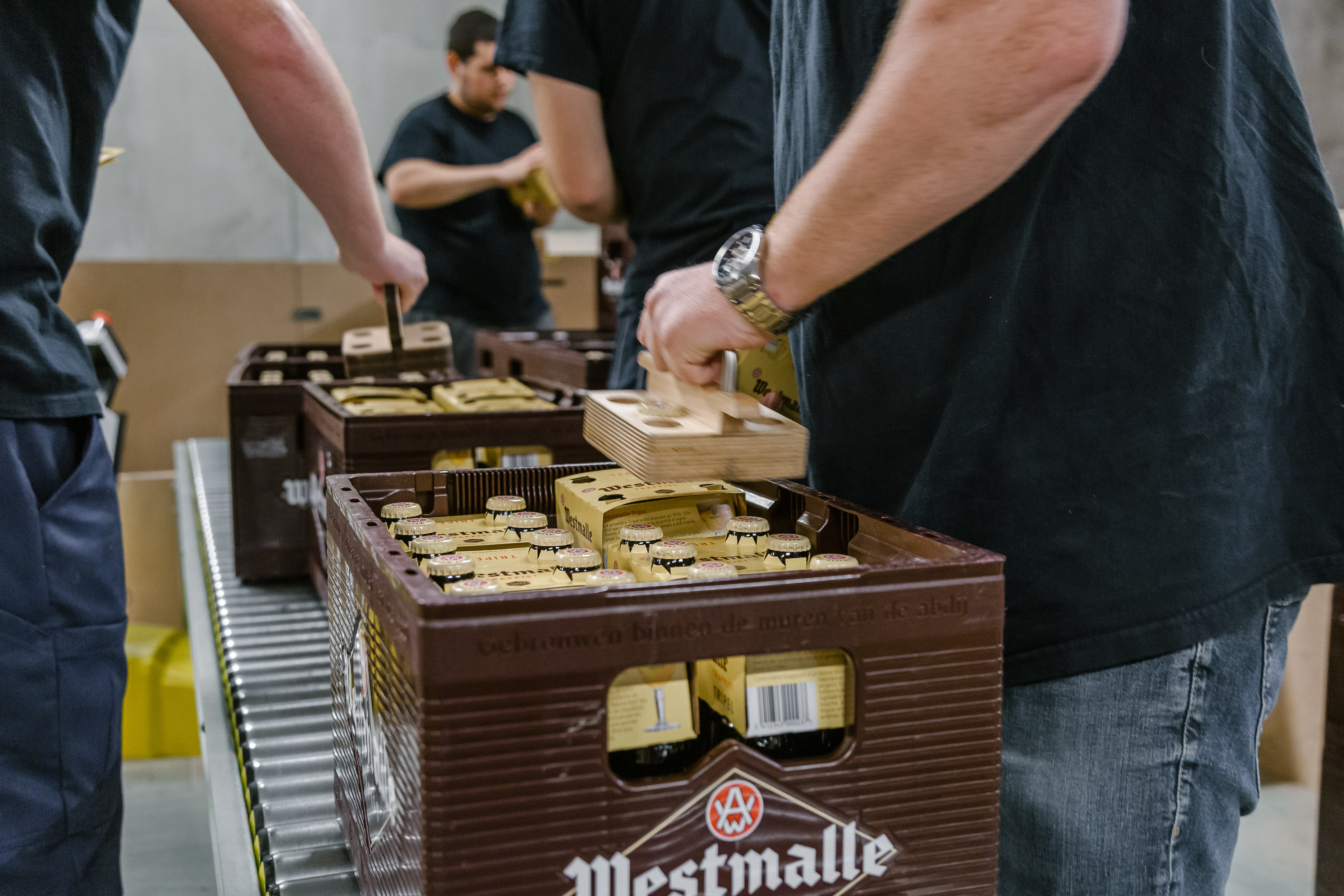
“There is no distinction. A beautiful example of inclusion.”
Hans Poels is responsible for the logistics department at the Westmalle Brewery. Three years ago, retail customers requested something that meant a labour-intensive addition to their production process. Since then, an A-kwadraat team has been working in the brewery.
How did you come up with the idea of deploying A-kwadraat employees in your production environment?
Hans Poels: “We used to sell individual bottles or crates of our Trappist beer. But three years ago, we were asked by our retail customers to sell our beer in clips, a cardboard carrier packaging in which four or six bottles are clipped into place. We were open to that suggestion, but we didn't have the space to integrate an extra machine into the bottling plant. The alternative was to apply those clips manually.
Because the application of clips requires a certain flexibility in the planning and all our people are fixed in other places, we quickly started looking for an external partner to help us with that. We already had experience with other social enterprises and in my previous job I also worked with A-kwadraat. All those experiences were positive. So the decision was easy.”
What exactly is happening?
“The beer comes from the bottling plant and goes to the maturation cellar. It is stored there for three weeks to mature and refermentate. Then the clips are applied. Five A-kwadraat employees do this on site."
How was the collaboration set up?
““After we had pose the question, we went to take a look in the production halls of A-kwadraat to get an idea of what was possible. Then, the business unit manager and the chief supervisor, among others, visited us on site to make concrete agreements. In consultation we have set up the work location: a wooden podium with a roller conveyor, two scissor lifts, a label printer and scanner, and so on. And the supervisors have obtained a forklift certificate that was necessary to do the job."
How is the interaction with your employees?
“The activities are fairly separate, only the forklift driver goes back and forth. But during breaks or at other times, the interaction goes very smoothly. There is a lot of mutual respect. We cannot do without their help. We know most of the permanent employees and the supervisors well. When there are attentions at Easter and Sinterklaas, no distinction is made. A good example of inclusion, I would say.
A-kwadraat employees also take on other tasks that involve closer contact with our people. Such as packing export boxes, which means that the bottles are removed from the crates and put into boxes for the foreign market. And there are two A-kwadraat people who work in the cheese factory as well, they coat the cheese and turn it several times a day. These are people who can work very autonomously without a supervisor. The collaboration and communication runs smoothly.”

Has corona caused a dip in production?
"On the contrary. The clips are sold in supermarkets and the demand increased when the cafes and restaurants had to close. We had to put in extra people.
At the beginning of the corona crisis, there was a break. A-kwadraat closed its doors and did not come to work on location for a few weeks. Then we spent a whole day applying clips in the bottling plant with all the staff. Since then, our respect has only grown.”
Are you happy about the output?
“After a short training period, the output is above expectations. Approximately 40 pallets are supplied with clips per day, which is approximately 40,000 clips per week. Almost flawlessly. At the beginning of the cooperation, our quality control department carried out regular random checks. The clips were applied almost 100% correctly.”
What is the added value of a partner like A-kwadraat for you?
“Reliability and consistency. The planning is well followed and the work is done quickly. They think along when there are problems and there is a lot of flexibility. The A-kwadraat team can be deployed for different tasks at different times, so that our own staff is given the opportunity to perform tasks.
The social aspect is also very important to us as part of a Trappist abbey. That is ingrained in our way of working. The abbey does not put profit first. The monks want to create meaningful work in which people feel good and can develop themselves. Due to the activities of the brewery, cheese factory and farm, they can provide for the maintenance of their own and several other abbeys. There is also room to support all kinds of small and large charities.”
